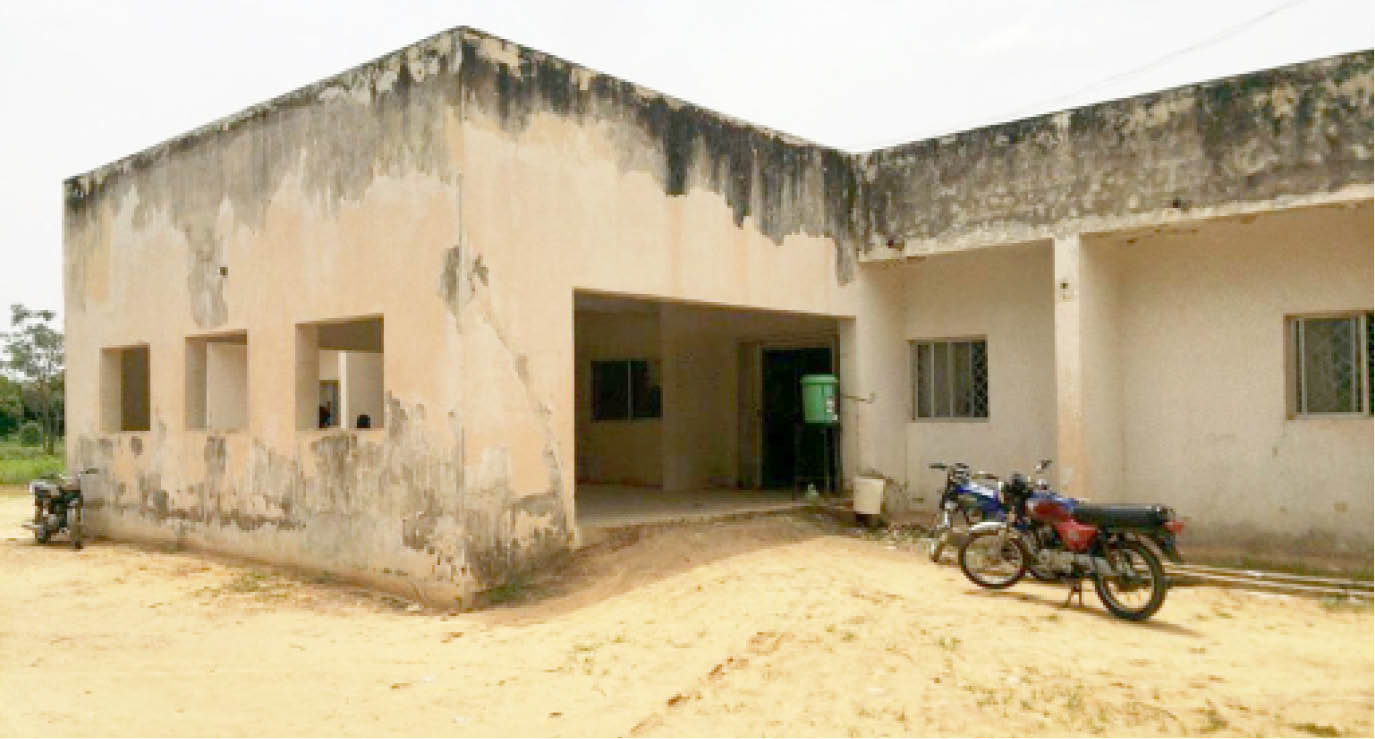Accessing basic healthcare comes with a great cost for residents of Hungu, a village in Kano State, as they make do with a dilapidated primary health care centre with inadequate facilities.
Hungu is a farming community with thousands of inhabitants. It is located about 60km away from Kano city and as much distance from quality health care services.
- Shun violence, FCT minister of state urges Nigerians
- Taming Azara and other killer bridges along Kaduna-Abuja Highway
The small village, situated in Albasu Local Government Area, along the old Kano-Maiduguri Road, has a Primary Health Care Centre (PHC) with a structure big enough to rival some of the biggest private hospitals in Kano city, the commercial centre of Nigeria.
The health centre at Hungu, which sits on an expansive piece of land by the roadside, has seen good days, but now, there is hardly any room there without a gaping ceiling, among several other signs of dilapidation.
According to a notice at the entrance to the health centre, it was constructed by the local government and commissioned on March 1, 2010 by then governor of the state, Malam Ibrahim Shekarau.
Initial findings had it that even in the heydays of the centre, the host community and other neighbouring communities preferred to patronise a patent medicine store (locally known as chemist) located within the village.

But residents of the community told Daily Trust that the patent medicine store closed shop when patronage of the health centre picked up following an intervention by a non-governmental organisation to revive the facility.
Before the intervention, residents said the health centre was a no-go-area because it lacked drugs, and the health personnel were usually absent, especially in the evening through the night when there is hardly any power supply to the facility.
“When it became clear to many of us that the health centre could not be accessed at night when serious health issues occurred, we zeroed our minds that it was not functioning. That is why most of us decided to either take our patients to a private clinic at Faragai or Wudil General Hospital,” Jummai Audu, a mother of three and resident of the community said.
Another resident of the community, Saminu Bala said, “They lacked resources to keep the centre running, such as drugs. At that time, they would diagnose you and prescribe drugs for you to buy. So we did not see the point of going there when you could go straight to the patent medicine store for medication.
“That was why many people preferred to go directly to the patent medicine store, which was a one-stop shop for all things medical.”
Few years back, a non-governmental organisation, Partnership for Transforming Health System (PATH2) in Nigeria, was said to have made some renovations on the facility.
Under the PATH2, Hungu community was encouraged to take ownership of the facility through the formation of a Local Health Committee (LHC) to oversee its activities.
It was gathered that the LHC took up the issue affecting the facility and brought it up before the then local government interim management committee. The outcome of this action was the provision of a power generator and an alternative solar power system for the facility.
To ensure the availability of drugs, the Drug Revolving Fund (DRF) for the facility was strengthened with over N1 million.
The confidence of residents was further boosted two years ago when one of them was assigned to oversee the facility.
The new officer in charge of the centre, it was gathered, also operated a patent medicine store in the village but ran out of business when services in the facility improved. He is also a community health extension worker who was also with the PATH2.
He is currently assisted by seven other health workers, including a midwife who comes from Kano city, a laboratory technician, two environmental health officers and a dental officer who does not have equipment but assists in the day-to-day affairs of the centre.
Sadly, it was gathered that after the PATH2 project folded up, the health centre went back to its initial status. The once renovated facility is now rotting away. The solar power equipment was abandoned and the 12 big batteries attached to it have gone bad due to lack of maintenance, while the DRF of over N1 million now operates with N27,000.

Ms Audu told our correspondent that the current status of the facility had made the community members to start losing confidence in it again. Curiously, despite its current state, it remains the community’s only source of health care.
An official of the health centre who asked not to named, said that on a daily basis, they attended to at least 40 patients, mostly because of the outbreak of malaria.
He said that malaria, typhoid and peptic ulcer were the major cases they treated, adding that they also contended with the recent outbreak of cholera in the country.
“We had one case in July and lost the patient. After that, one of our health workers contracted it, but we later got interventions from the local government.
When we exhausted all the interventions, the second case came and we had to refer him to another place because we did not have the resources to continue to manage him,” the official said.
Another health worker said they referred cases to general hospitals in Takai (10km away) and Sumaila, while severe cases are referred to the General Hospital, Wudil, about 30km away since there is no qualified medical doctor in the entire local government area. He said this situation affected their work and put patients at the risk of travelling on the highway to access health care.
The health centre has 12 beds, but the mattresses in most of them are in bad shape.
A woman who was recently delivered of a baby girl was on admission when Daily Trust visited the health centre. She was said to have delivered at home, but while the baby was in good condition, she developed some complications, including hemorrhage and high blood pressure. Her husband was said to have gone to look for money for blood transfusion.
Malama Hinde Bala, a traditional birth attendant, said going to the health centre at Hungu for delivery, especially in the night, could be suicidal.
“Tell me how one can deliver with candle or lantern in a health centre without a doctor or trained caregiver? To me, it is suicidal. Most of us are afraid to attend the Hungu Health Centre. We prefer to go as far as Wudil so as to be safe,” she said.
It was gathered that members of staff of the health centre also play other functions for the community, such as sensitising young females on maternal health issues.
While our correspondent was at the health centre, a group of female students from a nearby secondary school came for weekly sensitisation session.
A resident of the area, Malam Bala Hamisu, said members of the community were left with no option than to patronise the health centre even though they were not satisfied with its operations.
This investigation was supported by the Daily Trust Foundation and the MacArthur Foundation

 Join Daily Trust WhatsApp Community For Quick Access To News and Happenings Around You.
Join Daily Trust WhatsApp Community For Quick Access To News and Happenings Around You.



